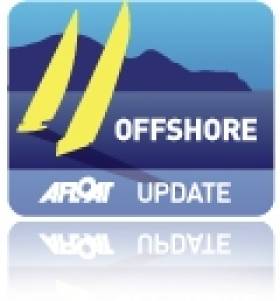Displaying items by tag: RITR
#RTIR - Winning tactical advice from some well-known names and faces associated with the Round the Island Race has been posted online ahead of the latest edition of the iconic annual event at the Isle of Wight.
Later today (31 May) will also see the official pre-race press conference on the eve of the 2013 JP Morgan Asset Management Round the Island Race, the 82nd anniversary of one of the most prestigious events on the world sailing calendar.
A terrific line-up of guests including Dame Ellen MacArthur and Alex Thomson will be on hand for the presser, which will be streamed live online and will also feature a tribute to the late Andrew 'Bart' Simpson, whose memorial service and private funeral is also being held today. The Island Sailing Club will fly the ensign at half-mast this afternoon.
Later this evening, the race competitors will meet for the all-important weather briefing. Racers will be given the latest weather and tidal information luve, coboned with tactical advice from Met Office-trained professional meteorologist Chris Tibbs.
In addition, competitors can evaulate the weather prior to the race by viewing the course overview and tidal strategy videos at the Raymarine website.
Among this year's competitors are Yvonne Margerison and her long-term partner Mike Flint, who are racing in their 20th Round the Island Race.
The couple entered their first back in 1993 in their boat Charis and have taken part almost every year since, apart from one when their mast was broken awaiting repair, and another when they sold Charis and were waiting to buy their new boat Gernee (S31) which is entered this year.
Margerison and Flint are passionate about sailing, have been very active members at Rutland Sailing Club - Flint is a past commodore - and both are former commodores at the Newparks Cruising Association Club.
While there's been talk of their retirement from racing - let's hope that won't be till after tomorrow's race, where race organisers hope they'll put in a strong showing.
How to follow the Round The Island Race action
The action begins tomorrow morning 1 June at 5am, and spectators can keep fully up to speed on the racing as it unfolds via the official Round the Island Race website, with features from the live blog to live race tracking, weather updates, and the latest news and results.
The race Facebook page and Twitter feed will also be maintained with the latest happenings. For those wishing to contribute to the Twitter news as the racers sail around the island, use the hashtags #RTIR and/or #RaceForAll to raise another £1 for the official charity, The Ellen MacArthur Cancer Trust.
























































